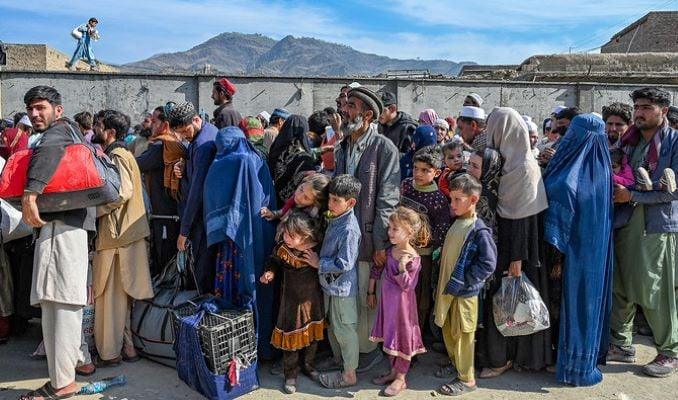The government has confirmed on April 30 as the final deadline for all foreign nationals residing in the country without valid visas to leave, with the Ministry of the Interior intensified its crash during the illegal foreigners’ repatriation plan.
The move is particularly targeted at undocumented Afghan citizens, with prime minister of domestic Talal Chaudhry announcing the renewed push of a press conference in Islamabad on Friday.
“Pakistan has shown unmatched hospitality for decades, but the time has come to enforce our immigration legislation closely,” said Chaudhry.
His statement comes in front of Deputy Prime Minister and Foreign Minister Ishaq DAR’s visit to Kabul, where a high -level Pakistani delegation is set to hold talks with the Afghan government.
The government had initially set a deadline of March 31 for Afghan citizens who lacked legal documents or held Afghan citizen card to voluntarily return. This deadline was later extended to April 30.
Since the beginning of April, over 84,800 Afghan citizens have been repatriated, according to Chaudhry. He said the process is handled in a “legal, organized and human way” with coordination from Afghan authorities to ensure a smooth transition.
Pakistan has hosted millions of Afghan refugees in the last 40 years, but currently there are over 2.1 million left, mostly in Khyber-Pakhtunkhwa and other provinces.
Officials cite rising national security threats as part of the reason behind the crash. More than 1,600 people were killed in attack last year, almost half of them security staff.
Chaudhry also warned of strict action against Pakistanis who provide housing, jobs or other services to undocumented foreigners. “If someone gives a store, house or any kind of space for an illegal foreigner, they will be held responsible under the law,” he said.
He further revealed that intelligence, which suggested that some weapons left by US forces in Afghanistan, ended up in the hands of terrorists and posed a serious regional threat. “Our policy is not driven by hostility, but by the need to maintain the law, secure public security and protect national interests,” he said.



